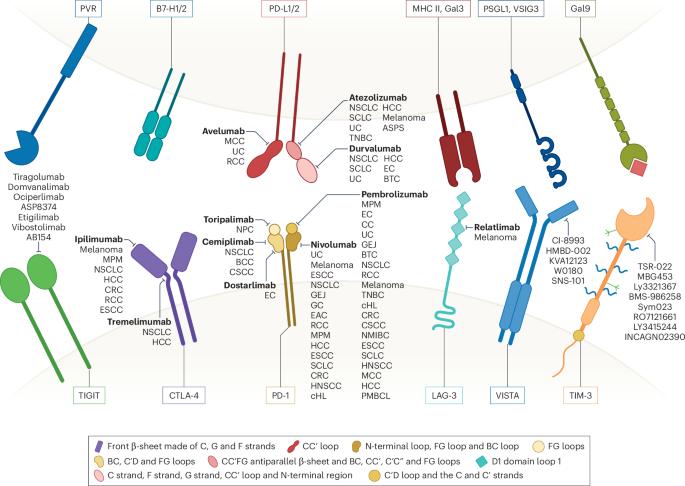Next-generation combination approaches for immune checkpoint therapy
IF 27.7
1区 医学
Q1 IMMUNOLOGY
引用次数: 0
Abstract
Immune checkpoint therapy has revolutionized cancer treatment, leading to dramatic clinical outcomes for a subset of patients. However, many patients do not experience durable responses following immune checkpoint therapy owing to multiple resistance mechanisms, highlighting the need for effective combination strategies that target these resistance pathways and improve clinical responses. The development of combination strategies based on an understanding of the complex biology that regulates human antitumor immune responses has been a major challenge. In this Review, we describe the current landscape of combination therapies. We also discuss how the development of effective combination strategies will require the integration of small, tissue-rich clinical trials, to determine how therapy-driven perturbation of the human immune system affects downstream biological responses and eventual clinical outcomes, reverse translation of clinical observations to immunocompetent preclinical models, to interrogate specific biological pathways and their impact on antitumor immune responses, and novel computational methods and machine learning, to integrate multiple datasets across clinical and preclinical studies for the identification of the most relevant pathways that need to be targeted for successful combination strategies. In this Review, Sharma and colleagues describe the current landscape of combination therapies and discuss requirements for the development of effective combination strategies.


免疫检查点疗法的新一代组合方法
免疫检查点疗法彻底改变了癌症治疗,为一部分患者带来了显著的临床疗效。然而,由于多种抗药性机制的存在,许多患者在接受免疫检查点疗法后并没有获得持久的疗效,这凸显了针对这些抗药性途径并改善临床疗效的有效联合策略的必要性。在了解调控人类抗肿瘤免疫反应的复杂生物学机制的基础上开发联合策略一直是一项重大挑战。在本综述中,我们将介绍目前的联合疗法。我们还讨论了开发有效的联合疗法将如何需要整合小型、组织丰富的临床试验,以确定治疗驱动的人体免疫系统扰动如何影响下游生物反应和最终临床结果,以及如何将临床观察逆向转化为免疫功能健全的临床前模型、以及新型计算方法和机器学习,以整合临床和临床前研究中的多个数据集,从而确定需要针对哪些最相关的途径来制定成功的组合策略。
本文章由计算机程序翻译,如有差异,请以英文原文为准。
求助全文
约1分钟内获得全文
求助全文
来源期刊

Nature Immunology
医学-免疫学
CiteScore
40.00
自引率
2.30%
发文量
248
审稿时长
4-8 weeks
期刊介绍:
Nature Immunology is a monthly journal that publishes the highest quality research in all areas of immunology. The editorial decisions are made by a team of full-time professional editors. The journal prioritizes work that provides translational and/or fundamental insight into the workings of the immune system. It covers a wide range of topics including innate immunity and inflammation, development, immune receptors, signaling and apoptosis, antigen presentation, gene regulation and recombination, cellular and systemic immunity, vaccines, immune tolerance, autoimmunity, tumor immunology, and microbial immunopathology. In addition to publishing significant original research, Nature Immunology also includes comments, News and Views, research highlights, matters arising from readers, and reviews of the literature. The journal serves as a major conduit of top-quality information for the immunology community.
 求助内容:
求助内容: 应助结果提醒方式:
应助结果提醒方式:


